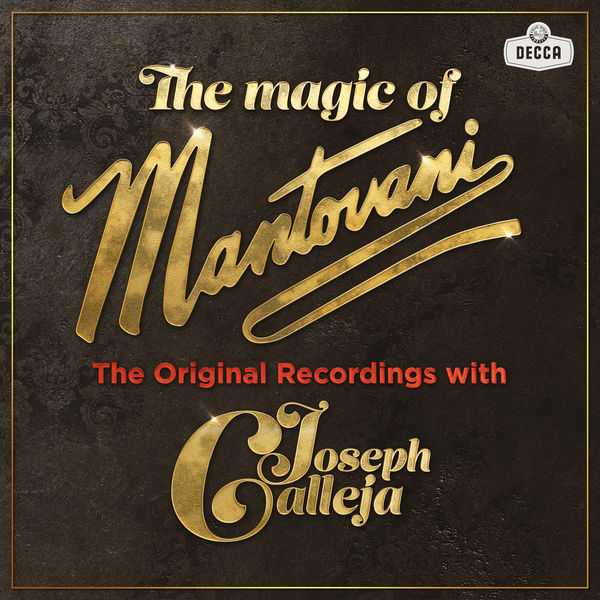

Composer: Leonard Bernstein, Bert Kaempfert, Henry Mancini, Richard Rodgers, Consuelo Velázquez
Performer: Joseph Calleja
Orchestra: Mantovani & His Orchestra
Format: FLAC (tracks)
Label: Decca
Catalogue: 4850894
Release: 2020
Size: 1.06 GB
Recovery: +3%
Scan: cover
01. Charmaine
02. Edelweiss
03. Spanish Eyes
04. Bésame Mucho
05. Que Será, Será
06. Maria (From “West Side Story”)
07. Somewhere (From “West Side Story”)
08. I Feel Pretty (From “West Side Story”)
09. Tonight (From “West Side Story”)
10. Cara Mia
11. Parla Più Piano (From “The Godfather”)
12. Arrivederci Roma
13. Stranger In Paradise
14. Strangers In The Night
15. Moon River
16. You’ll Never Walk Alone
17. Amazing Grace
18. Charmaine (Orchestral Version)
19. Spanish Eyes (Orchestral Version)
20. Strangers In The Night (Orchestral Version)
Decca presents the release of a brand new album in which Mantovani’s original orchestral 1950s and ‘60s recordings are remastered and set with brand new vocals – for the very first time – from one of today’s most acclaimed and sought-after singers, the award-winning Maltese tenor, JOSEPH CALLEJA.
40 years, this March, since Mantovani’s untimely death in 1980, his trademark “cascading” strings sound, which led to the star being the first artist ever recording artist to sell over 1 million stereo albums.
Promotional materials for this Decca release proclaim the orchestra leader Mantovani Britain’s greatest LP success before The Beatles, and indeed, his popularity in his time is rivaled only by his general obscurity in the 21st century. He’s ripe for a revival, and tenor Joseph Calleja does his bit with this release. For those unfamiliar with Mantovani, his recordings were almost all instrumental, consisting of lush orchestral arrangements, mostly by Ronald Binge, of popular songs and classical melodies. His music was designated light classical in Britain and easy listening in the U.S., but to those who loved it (and still do), it is not necessarily light or easy. The intricacy of the arrangements and the brilliance with which Mantovani realized them far exceeded those of his contemporaries. Herein lies the problem with The Magic of Mantovani: Calleja adds the lyrics of the original songs back into the original remastered instrumental tracks, and in so doing, he loses a lot of what makes Mantovani so interesting. Three of the original tracks, remastered, are included at the end of the album’s digital releases. With these, one can hear what is missing: listen to the vocal and instrumental versions of Charmaine, one of Mantovani’s biggest hits, and one may miss the exquisite division of the melody among different instruments in Calleja’s version. This said, Calleja’s versions succeed on their own terms. He has a real flair for semi-popular material, which is something the operatic scene has needed for a while, and he shifts adeptly among the various kinds of songs Mantovani adapted. Consider a song like Que Sera, Sera (which, by the way, does not mean “what will be will be” in any language): Calleja gets the American retroflex “r” that eludes most European singers. He doesn’t do a straight American accent in these but rather cultivates a natural idiom with a slightly exotic accent. This is delightful, and it is likely that the album will satisfy Calleja’s growing body of fans even as true Mantovani lovers may be less satisfied.



